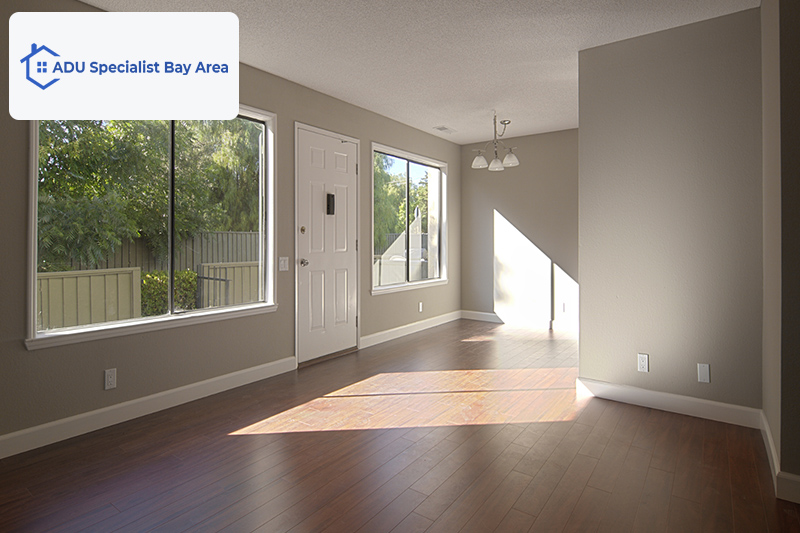- Call Free: 877-937-7970
Overcoming Detached ADU Permitting Hurdles is a significant challenge for homeowners looking to add living space to their property.

In this topic, we will explore some strategies for the overcoming detached ADU permitting hurdles. We will discuss common challenges homeowners face and provide insights on navigating the permitting process.
Addressing the permitting hurdles in the construction of detached ADUs is crucial for several reasons:
The permitting process for detached ADUs in the Bay Area can be complex and time-consuming, and homeowners often encounter several common issues. These include:
Zoning restrictions: Many local governments have specific zoning laws that restrict the construction of ADUs in certain areas or limit the size and design of the units. Homeowners must ensure their proposed ADU complies with these restrictions before submitting their permit application.
Environmental concerns: In some cases, homeowners may need environmental permits before beginning construction, mainly if their property is located near environmentally sensitive areas, such as wetlands or wildlife habitats.
Design requirements: Detached ADUs must comply with specific design requirements, such as setback and height, to ensure they do not obstruct views or create a nuisance for neighbors.
Permitting fees: Permitting fees can be significant, particularly for homeowners on a tight budget. The prices can vary depending on the project’s scope, so homeowners must budget accordingly.
Timeline: The permitting process can be time-consuming, with some applications taking several months to be approved. Delays in the permitting process can create additional expenses for homeowners, mainly if they cannot start construction within their desired timeframe.
| Strategies | Description |
| Conducting Thorough Research | Before submitting a permit application, homeowners should conduct thorough research to understand the local zoning laws, design requirements, and environmental regulations that apply to their proposed ADU. |
| Building Relationships With the Local Authorities, | These professionals can help ensure the project complies with local rules and advise on strategies to overcome permitting hurdles. |
| Addressing Concerns Proactively | These professionals can help ensure the project complies with local regulations and advise on strategies to overcome permitting hurdles. |
| Address environmental and design concerns. | Conduct site assessments and engage with environmental agencies before submitting the permit application. |
| Collaborating With Contractors, | Experienced professionals can guide design and materials selection that comply with local regulations and advise on strategies to minimise permitting delays. |
Once the permitting hurdles have been overcome and the ADU construction project is ready to begin, homeowners can take several steps to ensure a smooth and hassle-free construction process. Here are some tips:
Choosing a reputable and experienced contractor can make a significant difference in the quality and efficiency of the construction process. Homeowners should research potential contractors carefully, check their references, and ensure they have experience building ADUs.
A thorough plan outlining the project’s scope, timeline, and budget can help ensure the construction process stays on track. Homeowners should work closely with their contractors and architect to develop a plan addressing potential issues or concerns.
Maintaining open communication with the contractor and any other stakeholders involved in the project can help ensure everyone is on the same page and that any issues or concerns are addressed promptly. Regular check-ins and progress updates help keep the project on track and avoid surprises.
Construction projects can encounter unexpected delays or issues, so homeowners should be prepared to be flexible and adaptable as needed. This may require adjusting the timeline or budget or changing the design or materials selection.
Homeowners should stay engaged in the construction process and visit the site regularly to ensure the project is progressing as planned. This can also help identify any issues or concerns early on, allowing them to be addressed promptly.

We’re here to help you overcome those hurdles and realize your ADU dreams. Our team of experienced professionals has helped many homeowners navigate the complex permitting process and build beautiful, functional ADUs.
So if you’re feeling stuck or overwhelmed with the detached ADU permitting process, call us.
The permitting process for detached ADUs can take several months to complete, depending on the area’s specific requirements and the project’s complexity.
Homeowners can address neighbour objections by communicating with neighbours early on in the process and addressing any concerns proactively. This can help build trust and mitigate potential objections.
Building solid relationships with local authorities and addressing concerns proactively can help expedite the permitting process.
Homeowners can determine if their property is eligible for a detached ADU by consulting with their local zoning and planning department. They can provide information on zoning requirements, setbacks, and other regulations that may apply.